Copyright reform and open education advocacy are two sides of the same coin
Why is this important?
Strong educational exceptions to copyright are just as important as open licensing of resources, as complementary means to ensuring educational freedoms. While the availability of openly licensed educational resources continues to grow, a wide variety of cultural and informational resources that are critical for education remain locked up by restrictive copyright terms. Limitations and exceptions to copyright can give teachers and learners the necessary freedoms to use these resources for educational purposes, without having to ask for permission. Copyright reforms taking place around the world can strengthen these exceptions—or hurt education by weakening them.
The open education community needs to care about education-friendly copyright law that protects and expands rights to teach and learn. Open licensing and copyright reform are complementary of each other. The growth of openly licensed resources demonstrates the demand for freedom, openness, and collaboration in all kinds of educational materials. Working toward education-friendly changes to copyright law helps achieve universal access to education.
What is the opportunity?
We need to mobilize the open education movement, and make use of its strength and global reach, to support copyright reform that will serve educational communities.
Throughout the world, windows of opportunity open every few years to change how copyright regulates the use of content. We should seize upon these opportunities to promote expanded limitations and exceptions to copyright for education. At the global level, advocacy efforts at the World Intellectual Property Organisation (WIPO) forum aim to introduce a standard educational exception in the coming years. National level copyright debates are taking place around the world, including Argentina, Australia, Canada, South Africa and the European Union. The results of these reviews could have major repercussions on teaching and learning.
It is also vital that we—both the open education movement and the education community at large—defend ourselves against legislative proposals that remove or limit exceptions to copyright for educational use. For example, a 2017 proposal in Europe would alter existing educational exceptions so that schools and educators would be required to obtain licences from commercial providers for all educational uses of protected content, no matter how minor the use. This would place European educators in a greatly disadvantaged position compared to other regions.
Country-by-country, we need to advocate for strong and flexible exceptions that address the needs of modern education.
How can you get involved?
- Become part of an activist network on copyright reform for education, built by Communia, the association on the Digital Public Domain. Communia currently focuses on Europe but builds ties globally.
- Contact Electronic Information for Libraries (EIFL) and join a group of organizations and activists that are advocating at WIPO for a global educational exception.
- Find out whether a copyright reform process is happening in your region and get involved. One place to start is the Creative Commons Global Copyright Reform Platform.
- Define a position on copyright reform for your organization, institution, association, or network, and include copyright reform as an issue when raising awareness about OER.
